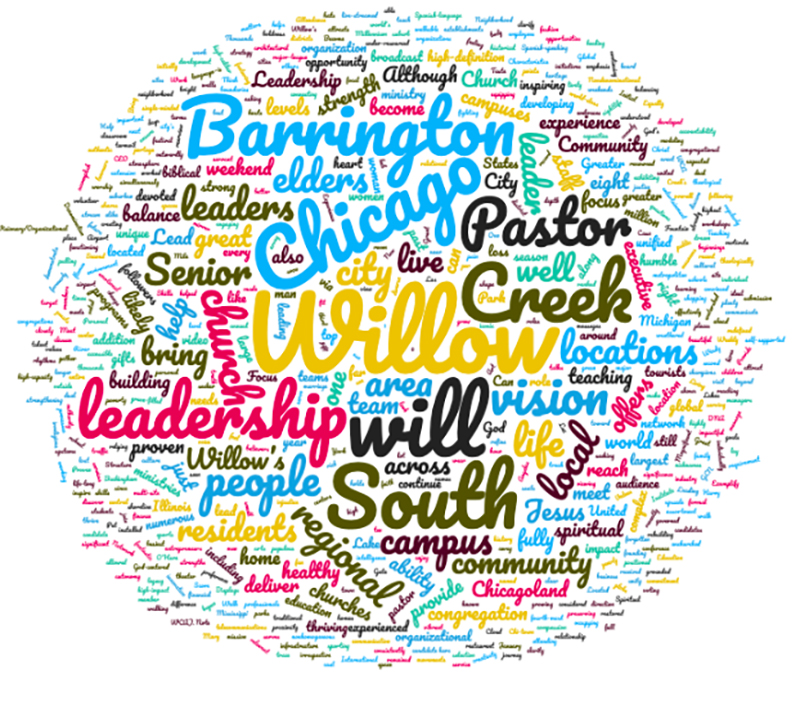
Scot McKnight is a professor at Northern Seminary and the author of several books, including “Pastor Paul: Nurturing a Culture of Christoformity in the Church.” The views expressed here do not necessarily reflect those of BCNN1.
Willow Creek Community Church was probably the most influential evangelical church in the world, and its architect, Bill Hybels was the most influential evangelical pastor in the world. If they and he were a notch or two below those claims doesn’t matter much for this article. Not only was Hybels influential, he reshaped the job description, image and toolbox of what pastoring is understood to be.
As a result, every Christian needs to be concerned about Willow Creek’s model because that model has entered the space of every church. This influence has undoubtedly been diminished but the network they established remains.
Professors of pastoral theology (which I’m not) talk about the models of a pastor often, and I read some of their books. Historically, pastor models include priest (mediator between humans and God), preacher (Sunday morning 11 a.m. event), teacher (same event, different approach), prophet (Sunday, plus weekday calling out of social injustices and immorality), psychologist (both in counseling people in the church and in the substance and approach to preaching) and social activist (establishing justice, dismantling injustice and bringing that activism into the pulpit and church).
Bill Hybels, and the Willow Creek culture, formed into a different model: the leader of an organization. Organizations form their message into branding — and no church branded itself better than Willow Creek. Hybels packed the weekend service into a seeker-friendly service that spoke to the “unchurched Harry and Sally” about their common human concerns. What people didn’t like about churches is what Willow Creek avoided and what was relevant to human concerns was what they focused on. Which required, if one watched attentively over the last three decades, adjustments and accommodations to meet “unchurched Harry and Sally” wherever they were at the moment. Which led to the model of a pastor who reads the signs of the times, recognizes the felt needs and ministers to the average folks.
I have often defended Willow Creek’s ministries because I believe it has reached (and will continue to reach) many people for Christ. There are good people at Willow growing in Christ, supporting missions and their church, reading the Bible daily, praying their hearts out, loving their neighbors and filling their world with God’s grace.
Over time, I’m sad to say, Bill Hybels’ commitment to an organizational leadership model overcame his capacity to let Scripture shape what a pastor is. Someone sent me a link to the recently posted job description at Vanderbloemen for Hybels’ replacement. The job description outlines in great detail what Willow is looking for in their next senior pastor.
I read it carefully to comprehend how the description defined what a “pastor” is. To give myself a “word” impression, I pasted the whole thing into one of those word cloud apps. One cannot equate what emerges from a word cloud as infallible information, but neither should one ignore a word cloud’s graphic display.

Image courtesy of Scot McKnight
The most prominent term in the job description is “Willow.”
Self-advertisement is the heart of this job description’s word cloud: It displays a job description most concerned with “We are Willow Creek Community Church,” and we want someone who will expand our name, our reputation and our ministries. That word cloud says “our history is our future.”
From the days of the Apostle Paul, the first feature of any description of what a church is looking for is the list of qualifications for a bishop/elder/deacon in the Pastoral Epistles (1 Timothy 3:1-7 and Titus 1:7-9). On top of that, one must add that the design of God for all of us is to become Christlike (Romans 8:29). If that is God’s design, nurturing Christoformity is the heart of every bishop’s/elder’s/deacon’s calling.
Click here to read more.
Source: Religion News Service